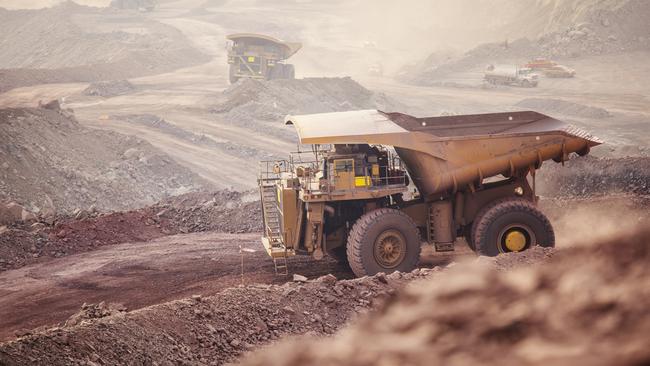Big business lashes multi-employer bargaining for ‘dragging’ mining, fast food, disability sectors and others into costly disputes
Business says employers are already being consumed by ‘costly’ legal disputes stemming from Labor’s multi-employer bargaining rules, with claims in sectors ranging from disability to fast food.

Business leaders say employers are already being consumed by “costly” legal disputes stemming from Labor’s multi-employer bargaining rules, with the union-backed reforms sparking claims in sectors ranging from disability to fast food.
Ahead of a landmark court challenge to multi-employer bargaining lodged by three of the nation’s mining giants, Australian Industry Group chief executive Innes Willox cautioned that industrial relations reforms would lead to “years of conflict”.
The watershed test case will see mining heavyweights Whitehaven Coal, Peabody and Glencore argue an appeal to a workplace tribunal decision enforcing joint bargaining in the Federal Court, amid warnings that anti-competitive rules will stymie productivity.
“We are now seeing employers being dragged into costly legal disputes over union claims for multi-employer bargains in sectors ranging from the mining industry to the fast food and disability sectors, with plenty of others clearly in the crosshairs,” Mr Willox said.
“This has a long way to play out.”
Business Council of Australia chief executive Bran Black urged the Albanese government to wind back the laws or risk returning the workplace relations system “to the 1970s”.
“Multi-employer bargaining is an anti-business policy which could have real-world consequences for almost any business in Australia,” Mr Black said.
“It’s clear, despite what the government’s promised, that nearly every sector and every industry could be targeted by these economically destructive laws.”
Australian Chamber of Commerce and Industry chief executive Andrew McKellar said there was a risk multi-employer agreements could be implemented in retail – and particularly food distribution – tertiary education, manufacturing and road transport.
“We think there’s a risk of higher costs, lower productivity, lost flexibility and effectively the risk to jobs in the future,” he said.
It comes as Australian coalmining company BHP Mitsubishi Alliance said sudden policy and fiscal changes without meaningful consultation were making Queensland a less attractive place to invest.
A lack of engagement with industry in the Sunshine State meant BHP had opportunities to invest for better returns and lower risk elsewhere around the world, as well as in other states such as Western Australia and South Australia.
“We’ve already seen other jurisdictions, such as in Canada, where they are streamlining and harmonising their approvals processes. Australia and Queensland should follow suit,” BMA asset president Adam Lancey will say in an address to the Queensland Resource Media Club on Tuesday. “What the sector needs are policy and fiscal settings that give Queensland a competitive edge. Faster permitting. And an industrial relations system that delivers productivity, flexibility and competitiveness to drive job creation and wage growth.”



To join the conversation, please log in. Don't have an account? Register
Join the conversation, you are commenting as Logout